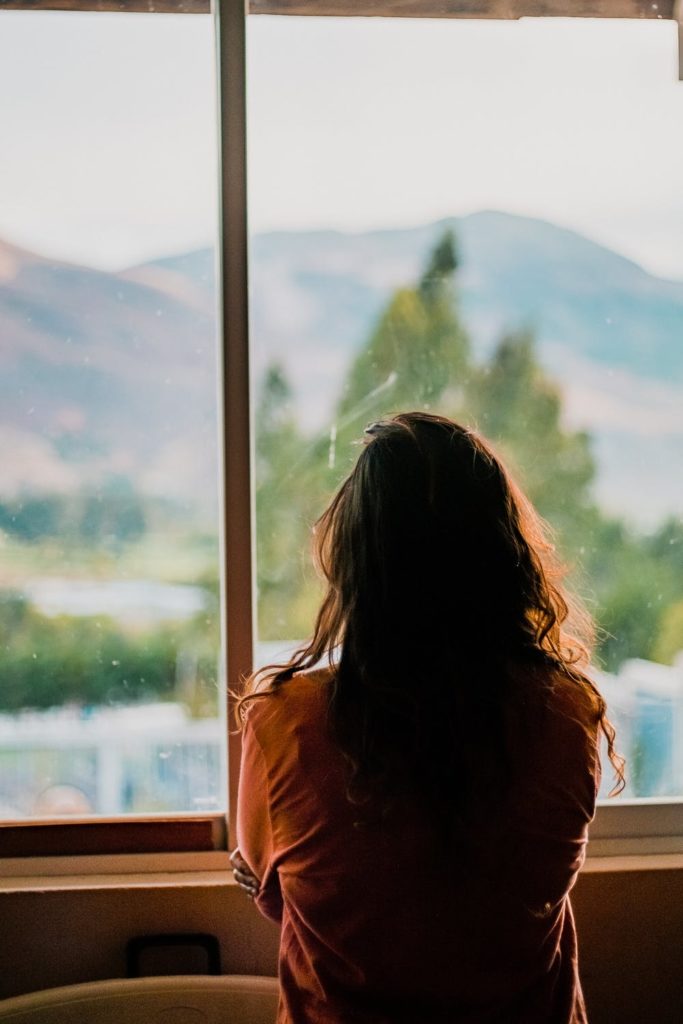Mental Health And Coronavirus
Dealing With Loneliness During A Pandemic
 Social distancing has changed the way we live our everyday life. Many people no longer go to work and instead work from home, children and young adults can’t go to school, but instead complete homework packets or do online school work. We are unable to socialize with people we care about, we can’t go to movies or to restaurants. We cannot enjoy sporting events or go on vacations.
Social distancing has changed the way we live our everyday life. Many people no longer go to work and instead work from home, children and young adults can’t go to school, but instead complete homework packets or do online school work. We are unable to socialize with people we care about, we can’t go to movies or to restaurants. We cannot enjoy sporting events or go on vacations.
Human beings tend to be social creatures. Although some people embrace solitude and therefore have more easily adapted to current circumstances, for individuals who are typically more social, the sudden mandate to be socially distant from others has led to feelings of loneliness and isolation. Although loneliness and social isolation can affect anyone regardless of age, the elderly are particularly vulnerable and loneliness becomes chronic when people feel lonely often. Even as social distancing restrictions are eased, there will be challenges that lie ahead, as many vulnerable individuals will remain in some form of isolation.
Loneliness can have a detrimental impact on our mental and physical health. Research shows that lacking social connection is a comparable risk factor for early death similar to smoking 15 cigarettes per day and has more harmful effects on us than obesity and physical inactivity. Loneliness has been found to increase the likelihood of death by 26%. Loneliness can contribute to anxiety disorders, depression, overconsumption of alcohol or other substances, loss of self-esteem, feelings of powerlessness and stress.
Unfortunately, the social isolation brought on by coronavirus has been everyday life for many individuals. The current crisis has shed a light on the importance of emotional connection and the need to tackle loneliness has never been greater.
Loneliness is experienced when there is a difference between the emotional connections we desire and the emotional connections we actually have. Loneliness can be experienced by having few social connections or by having a poor quality of intimate connection with those who are closest to us. During this time of pandemic, we are experiencing both types of loneliness because we are cut off from friends and close relationships are becoming strained.
Social distance does not have to inevitably lead to loneliness. Although face-to-face contact is wonderful, with some effort we can find new ways of feeling connected. Feeling connected means that you feel that you are in touch with someone who cares about you, who understands and appreciates you and who will be there for you in times of need. Thankfully, we can connect with others via technology in a way that wouldn’t have been possible not too long ago. Maintaining existing connections and building new ones if possible, is important during these times. We can stay connected by video chatting, texting or phoning a family member or friend. We can create or join virtual parties, game nights, wine tastings, book clubs, happy hours, dinners, and dance parties. In this age of the internet, it’s fortunately not too difficult to find creative ways to stay connected with family and friends while social distancing.
Other things you might try if you are struggling with feelings of loneliness:
- Have a structured day, that includes healthy routines
- Keep positive by implementing a gratitude practice
- Stay present with mindfulness meditation
- Plan something to look forward to each day, like a phone call, movie, or doing a puzzle
- Go out into nature, if possible
- Talk to someone about your worries
- Do activities that challenge, interest or inspire you
- Think short-term (this moment, today) instead of longer-term
The current pandemic affects us all, in different ways. Feelings of loneliness, anxiety and fear are common. And while it is necessary to maintain physical distance from each other, it is equally as important to maintain a caring, emotional connection with one another.
At GroundWork Counseling in Orlando, we strive to create therapeutic relationships that are both personal and collaborative. We believe in empowering clients to take control of their challenges by examining unhelpful thinking patterns and creating mastery of new, healthier, and more adaptive ways of living. Our treatment approach is based on extensive scientific research and clinical experience. We are currently offering Cognitive Behavioral Therapy (CBT) in office, and virtually.
Speak With An Orlando CBT Therapist
407-378-3000





